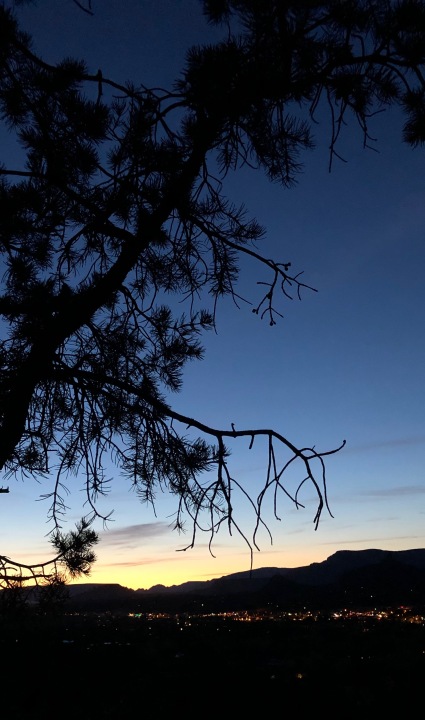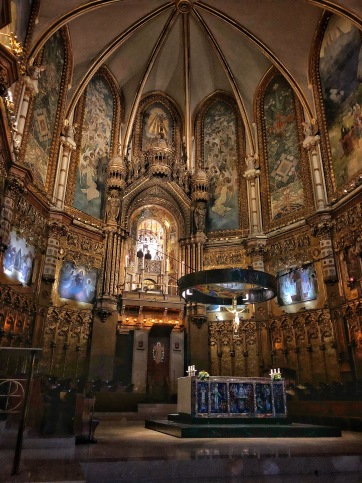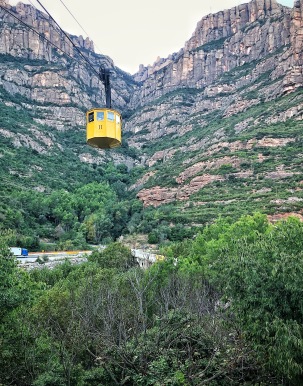I was baptised at the First Baptist Church of Whittier when I was twelve years old. I did it to make my parents happy. It did. I really didn’t know what I was doing then, taking Christ as my personal savior, and for the longest time, while I’ve had an affinity for Christ, I didn’t relate to the personal savior aspect. I see Christ dying on the cross, resurrecting, and having everlasting life as a metaphor for the notion that we do not die and simply cease to exist, but manifest in a different plane, with different attributes, or simply change state and our consciousness has a different point of view.
But then I saw the crucifix on the grounds of the Sanctuary of Our Lady of Fatima, in Fatima, Portugal. It’s a gargantuan cross (122 feet) with a long lean Christ hanging lifeless, dead at the hands of his own, and I started to cry. The only way to stop was to turn away.

Not everyone likes this crucifix, angular and stark, but it carried great power for me, walking toward it, the cross blocking the setting sun. I tried to reconcile my feelings about how a man who did so much for so many ended up on a cross with nails driven through his hands and feet, and left to die in a public display of disdain and power. I could not.

I wasn’t on a conscious pilgrimage during our trip, but by the time we returned home, I remembered many interesting experiences around spiritual places.
Sagrada Famila (Sacred Family) is difficult to describe. It is old, it is new, and like the medieval cathedrals Notre Dame and Chartres, it is being build over generations. It required my full attention.

The cathedral sprouts from the ground in the middle of Barcelona, Spain. It’s got a McDonalds, a Five Guys, and a Starbucks right across the street, which I found both disturbing and amazing that those three companies could pull off that venue.
There are stories of Christ’s life carved around the outside of the cathedral. The final cathedral tower will be the Christ tower, supported by four internal pillars, Matthew, Mark, Luke, and John. Due to complete in 2026.
Late afternoon light streamed through the cathedral, setting the place aglow. My wife went in ahead of me, to get our audio tours. She came out in tears, and simply said, “The Light.”


The ceiling felt familiar, like I’d seen it in a science fiction movie, where people from all walks of life live together in peace and harmony. It gave me hope.

We sat in the nave, to meditate and pray, but it was difficult to stay in that little space when this enormous sanctuary was all around and it looked like Christ was coming in on a parachute.

There is so much color and structure to the inside of this cathedral, yet no statues, other than Christ on the cross.


Architect Antoni Gaudi designed the cathedral. His work can be seen all over Barcelona. A whimsical style and from what I can gather, structurally brilliant. After Gaudí’s death in 1926 the construction was continued by architects and craftsmen who had worked with him, according to his plans and plaster models.
The story of Christ’s birth is told on the oldest side of the cathedral. It is adorned by an enormous supporting cast of story-telling statuary.

The story of his death is told on the newest side of the cathedral. More modern, more angular.

I began a series of blog posts about our trip to Barcelona, Lisbon and the island of Madeira with a post called Why I’m Tired. I hope you’ve enjoyed these images and thoughts as much as I have getting them down. Photos shot with iPhone 8plus and edited in Snapseed.




















